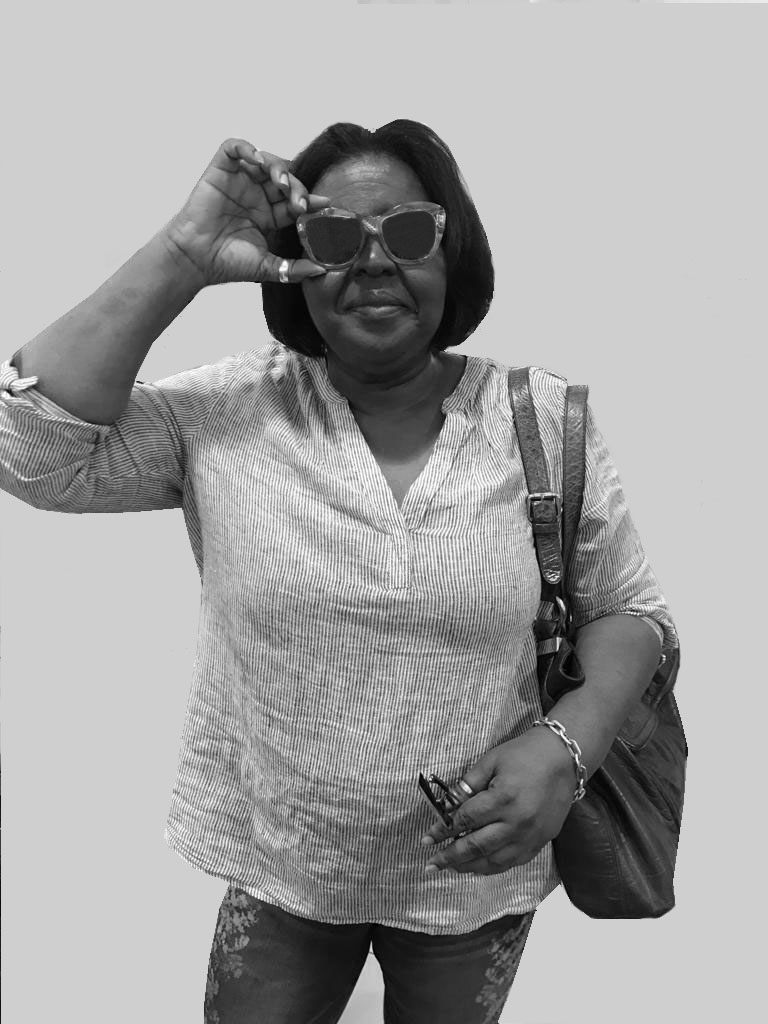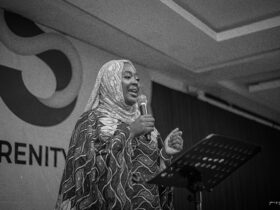
Konya Shamsrumi: What is the process of writing a poem like for you? Is it a lot of hard work or easy?
Janneth Mornan-Green: Someone once said it is better to “have written.” Implicit in that statement is the notion that the well-executed product is always more desirable than the process of writing.
Writing anything can be a challenge and poetry is probably more so, because one is expected to condense one’s emotions and ideas into a few lines of skillfully united thoughts and words. But I enjoy the process of transforming ideas, words and phrases into literary art. Finding the right word to do the job or crafting an expression ina way that uniquely conveys meaning is very satisfying.
Unfortunately, poetry writing can also be a most frustrating exercise. There is a poem – Otaheiti Blossoms – that I have been trying to write for nine years. It has been an endless process of writing and re-writing and I am still not satisfied with the outcome; but refuse to abandon it.
My friend and colleague, writer Jean Goulbourne, told me years ago that to become an accomplished writer requires daily devotion. One must schedule time for writing every single day in order to hone one’s craft. I have found this to be true. Writing requires discipline and discipline does not come easily.
So, for me, poetry writing, in fact writing in general, is not only very personal and revelatory but also challenging and lonely. I am a perfectionist and I always want to ensure that anything that bears my name not only satisfies me but can also stand up to scrutiny. That’s hard work!
Konya Shamsrumi: Please describe your sense of identity in this or any possible world in imagery or metaphor?
Janneth Mornan-Green: What is “identity?” I am a child of God, a daughter, a woman, a mother, a wife, a teacher, sister, friend, black, writer, Jamaican … the list goes on. How does one coalesce these varied parts into one “specified thing?” Maybe I am simply, Janneth – evolving. An amalgam of experiences.

Konya Shamsrumi: If any of your poems could literarily save a person’s life, which poem would it be, and can you describe the person whose life you think it would have saved?
Janneth Mornan-Green: I am hardpressed to think of one poem that could save a person’s life – literally. But there is one called After that I wrote when my young niece, Jordan, was killed in a car accident. If only it could bring her back. She was also an aspiring writer and a beautiful, ambitious and accomplished young woman. She acknowledged no barriers and saw her life experiences as a series of stepping stones to get her to the next level of success.
For the earth does not forget our footsteps or our faces,
After, by Janneth Mornan-Green
and the wind will continue to sigh like confounded mourners
willing the benevolent sun to touch their cold hearts
and make them look again to where the seeds have fallen and sprouted.
Konya Shamsrumi: What does Africa mean to you, as potential or reality?
Janneth Mornan-Green: Africa is a vast continent of reality and possibility. It is, and it is also becoming. But it cannot allow itself to be defined and manipulated by others. This may sound simplistic, but it is also true. The question must therefore be asked – How can African nations chart a course for development without being exploited by the very persons who claim that they want to help? There is no easy answer.
Like the Caribbean and other developing regions and countries, however, there must be a conscious commitment to growth and development within the context of a model that puts the people of Africa at the centre of all related initiatives.
Those of us in the diaspora are strongly connected and look to Africa not only because of our roots that are deeply planted there, but also because we will only be truly respected when the continent of Africa (not just the individual nations) takes its place once again as a force that the so called “developed world” can neither ignore nor dominate.
Konya Shamsrumi: Could you share with us one poem you’ve been most impressed or fascinated by? Tell us why and share favorite lines from it.
Janneth Mornan-Green: So many poems. So little time and space. But there is a St. Lucian poet – Vladimir Lucien – who I greatly admire. He is a modern master of metaphor and his work touches and resonates with me deeply. I like Even Here:
Even here, alone in the one-roomed page, where
the light never goes off, these words are only pieces of our broken shadows.
There is a silverfish in our heart, leaving spaces where
there were things it was not correct to feel for, where our words are buried
in that deepening hole in the pages of the book of life
under the elegant sepulchre of poetry.
Even here, there are things that must not be spoken of,
and even that must be done beautifully.
Janneth Mornan-Green is a communication consultant and part-time lecturer at the Caribbean School of Media and Communication (CARIMAC), University of the West Indies, Mona, Jamaica. Her poems explore universal themes: love, death, relationships, social issues – and have appeared in DreamRock, the Jamaica Sunday Observer’s Bookends and in the online journal, Jalada. She has also published Crossings (amazon.com), a collection of poems.













Leave a Reply